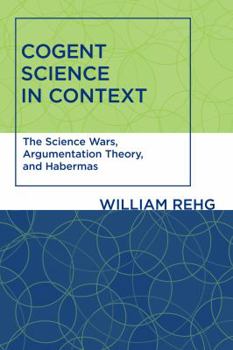Cogent Science in Context: The Science Wars, Argumentation Theory, and Habermas
Select Format
Select Condition 
Book Overview
A proposal for an interdisciplinary, context-sensitive framework for assessing the strength of scientific arguments that melds J rgen Habermas's discourse theory and sociological contextualism.
Recent years have seen a series of intense, increasingly acrimonious debates over the status and legitimacy of the natural sciences. These "science wars" take place in the public arena--with current battles over evolution and global warming--and in academia, where assumptions about scientific objectivity have been called into question. Given these hostilities, what makes a scientific claim merit our consideration? In Cogent Science in Context, William Rehg examines what makes scientific arguments cogent--that is, strong and convincing--and how we should assess that cogency. Drawing on the tools of argumentation theory, Rehg proposes a multidimensional, context-sensitive framework both for understanding the cogency of scientific arguments and for conducting cooperative interdisciplinary assessments of the cogency of actual scientific arguments. Rehg closely examines J rgen Habermas's argumentation theory and its implications for understanding cogency, applying it to a case from high-energy physics. A series of problems, however, beset Habermas's approach. In response, Rehg outlines his own "critical contextualist" approach, which uses argumentation-theory categories in a new and more context-sensitive way inspired by ethnography of science.





